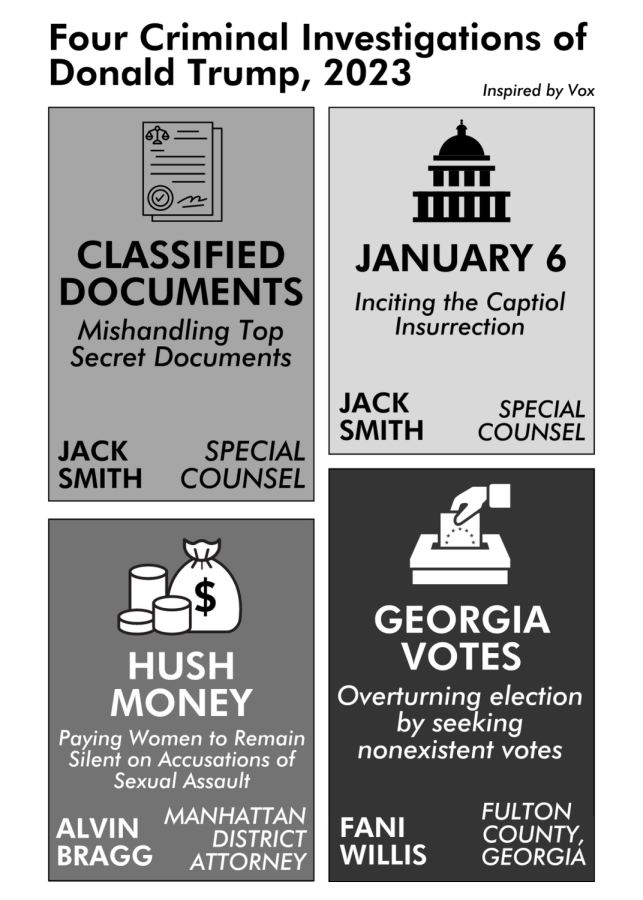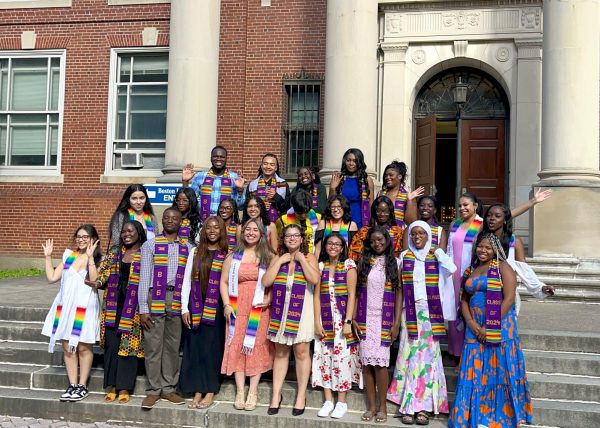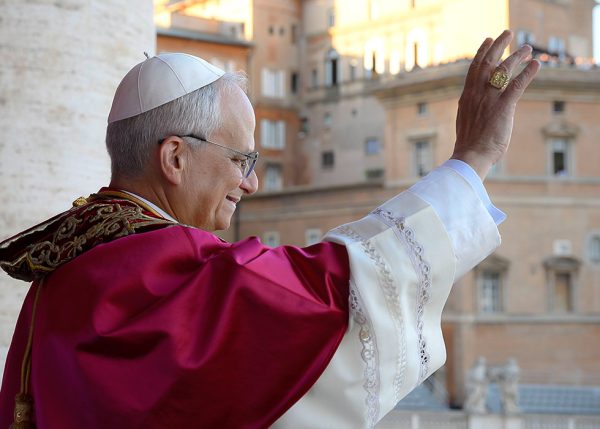Trump Struggles With Legal Troubles
On March 30, former President Donald Trump was indicted in New York on 34 charges of falsifying business records, making him the first president in United States history to be charged with a crime.
The charges stem from payments Trump allegedly made to Stormy Daniels and Karen McDougal in an attempt to cover up his affairs with both women. According to New York Public Radio, the payments, called “hush money,” do not violate the law on their own. Trump, however, illegally manipulated records to hide the existence of those payments, leading to his indictment. Since he also allegedly falsified the records to conceal a separate crime, his charges are at a felony level.
Even though Trump’s indictment is recent, his alleged crimes are not. The Washington Post reported in 2018 that he instructed his lawyer Michael Cohen to pay Daniels 130,000 dollars before the 2016 election. Cohen eventually pleaded guilty to various financial crimes, including violations of campaign finance laws. The lack of legal precedent for criminally investigating a sitting president, however, deterred prosecutors from bringing charges against Trump himself until mid-to-late 2022. Aidan Ormsby (II) says, “I’m surprised it took so long for him to be indicted, but the legal system is complicated.”
Trump pleaded not guilty to the charges, insisting that they are part of an unfounded “witch hunt.” He also called on his supporters to protest against his indictment.
Trump’s indictment has been met with opposing viewpoints from different political parties. The National Public Radio reports that most prominent Republicans, even those who have been critical of him, agree that the charges are politically motivated. Many have expressed that pursuing charges against a former president would divide the country and harm the Republican image. Most Democrats, on the other hand, consider the indictment to be a demonstration of the universalism of law — it applies to everyone.
In a U.S. criminal trial, prosecutors gather evidence and present it to a grand jury. If the jury agrees that the evidence is sufficient to prove probable cause, they will indict the accused, allowing prosecutors to formally file charges. If the defendant pleads guilty, they are convicted and sentenced, often working out a plea deal with prosecutors; if they plead not guilty, the case goes to a trial, where a jury will hear evidence from both sides. If the defendant is proven guilty by the jury, they will be convicted and sentenced.
Trump’s former presidency complicates this process. Boston Latin School AP Government teacher Ms. Meredith Elliot explains, “Not charging Trump because he is a former president would be problematic, but charging Trump because he is a former president is just as problematic. So, the New York attorney is trying to balance all of this.”
Amid this, Trump is campaigning for a second presidential term — the Constitution does not prohibit someone who is charged or convicted of a crime to run for and serve as president. An indictment and possible trial will undoubtedly garner large amounts of political attention, leading many to speculate how it will affect the 2024 election. Some predict that it will tarnish Trump’s image and hurt his campaign, while others think that he will use it as a way to rally up political support. Jacob Marberblatt (II) says, “We could see a sort of martyr effect that could boost his support among Republicans in next year’s primaries.”
Although the “hush money” investigation is not the only criminal investigation Trump faces, it is the only one so far that has resulted in an indictment. Prosecutors have also been working on three other inquiries about whether the former president broke the law with his alleged efforts to overturn the results of the 2020 presidential election in Georgia, including his team’s alleged attempts to install fraudulent electors in key states, his mishandling of classified government documents, and his role in the January 6th Capitol insurrection.
Ms. Elliot highlights the importance of proceeding slowly in these investigations: “The institutions investigating and potentially charging the former president are moving carefully. […] A slow-moving investigation and not rushing to charge a former president with a crime is hopefully evidence of prosecutors adhering to the rule of law instead of a politically motivated investigation.”






